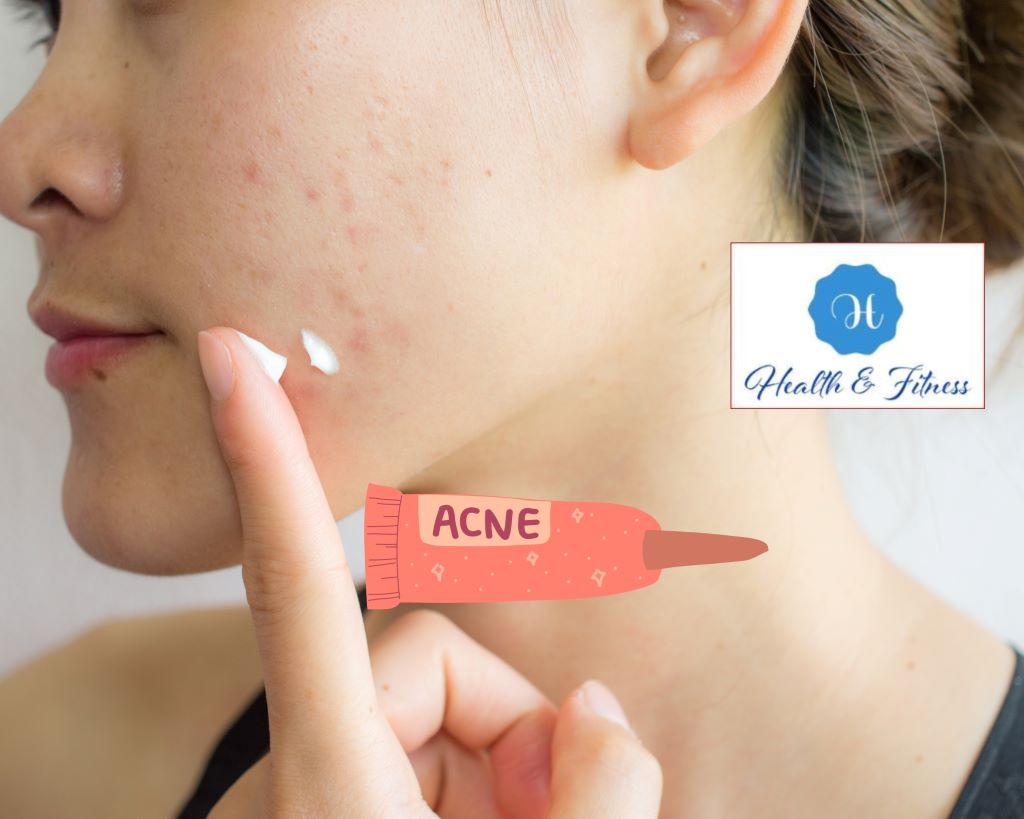Acne 2023: Everything You Need to Know
Acne has the potential to become a teenager’s worst nightmare in a short amount of time. Cysts that are irritated and painful. Pimples that attract the eye. The mere mention of their puberty-initiated onslaught of hormonal Acne can cause most people to experience a visceral reaction. On the other hand, acne is not a disorder that worsens with age. It affects people of all ages and genders, yet it still affects millions today. Getting rid of Acne may be frustrating for some people, as many know. The news is that taking the time to identify the type of Acne affecting your skin and learning how a dermatologist, such as those found at Crystal Run Healthcare, can assist are both excellent first steps toward achieving clear, healthy skin. This article addresses your most pressing issues about it, its causes, and the treatments that you have access to.
What Exactly Is Acne?
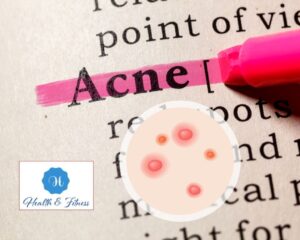
Acne is a common skin disorder that can cause pimple breakouts to occur regularly or to linger for an extended period. These blemishes may also be referred to as whiteheads, blackheads, cysts, blemishes, or simple pimples. Even if the appearance of a single zit here and there doesn’t cause concern, you might have Acne if you have frequent breakouts, more than one zit at a time, or if you notice that you’re prone to getting pimples in the same places repeatedly.
Signs and Symptoms of Acne
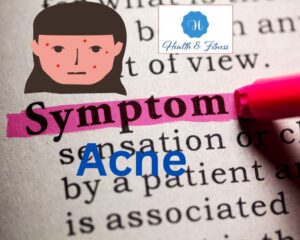
Acne might develop anywhere on the body, including the face, neck, shoulders, and upper back. Some instances of these symptoms include the following:
- Frequent outbreaks of Acne
- Numerous large, irritated cysts
- Plaques that ooze pus or are packed with pus
The following are some of the most prevalent “zits” connected with it:
- Clogged pores that have reached the skin’s surface cause blackheads to appear black because the air oxidizes the oil or sebum they contain.
- Whiteheads are bumps that can be seen under the skin caused by follicles that have become clogged.
- Papules are small, reddish-pink lumps that appear on the skin. These bumps are caused by tiny lesions that become inflamed. When touched, they may cause excruciating agony.
- Pustules, also known as pimples, are bumps with pus-filled lesions with red and inflamed bases. Pimples are another name for pustules.
- Nodules are large, solid lesions located deep under the skin and excruciatingly painful to the touch.
- Cysts are painful variants of nodules that may also ooze or contain either white or yellow pus.
In contrast to more manageable hormonal breakouts, it is significantly more resistant to treatment and can persist for weeks, months, or even years. In most cases, it does not react to treatment using breakout, zit creams, washes, or toners available over the counter.
Who is Most Likely to Get Acne?
It is a common skin disorder that can affect people of any age. It can even affect teenagers. On the other hand, it most frequently strikes adolescents in their pubescent and post-pubescent years and can persist long into their late 20s. By the time most people reach the age of 30, their Acne will have cleared up on its own spontaneously. However, the treatments available can help clear up your Acne much more quickly.
What are the Roots of Acne?
Your body has thousands of these holes, called pores, all over its surface. These pores let sweat and oil escape through the skin, which helps your body rid itself of toxins and keeps you cool. On the other hand, these pores are susceptible to clogging because of oil, dead skin cells, debris, and bacteria. You will most likely develop a zit in that location when something like this occurs. For acne, it’s not just a matter of one or two pores blocking every once in a while. This condition can clog and irritate multiple pores across your upper body simultaneously. It causes the appearance of blemishes and pimples, both of which result from this.
The Contributing Factors That Lead to Acne
Although clogged pores are the direct cause of Acne, other factors might contribute to its development of it or make it that already exists worse. These include:
- Hormone alterations or abnormalities, particularly in women
- Picking at zits or pimples, which could spread bacteria and trigger further outbreaks
- Changing your diet to avoid foods high in omega-6 fatty acids
- Getting enough sleep
- Avoiding stress
- Dirt or bacteria could be transferred to your skin if you wear old or dirty headwear like hats or helmets;
- Air pollution could leave dirt on your skin that you can’t see;
- Using oily or greasy hair or skin care products can clog pores.
- Your cortisol levels can surge because of stress, leading to breakouts.
- Certain drugs
- • Your genetic make-up
Different kinds of Acne
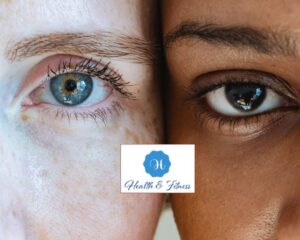
It manifests itself uniquely in each person, and knowing the subtype of Acne that you have can assist you in selecting the most appropriate treatment option for your condition.
Acne that contains cysts
The most severe form of the condition is cystic Acne, which can cause pus-filled lesions to appear all over your skin. These lesions can be highly painful. People with oily skin and women or teenagers with hormonal imbalances are more likely to suffer from cystic Acne. Hormonal imbalances can be brought on by puberty, menstruation, polycystic ovarian syndrome (PCOS), increasing androgen levels, and menopause. Cystic Acne is one of the most challenging forms of it to cure and, if left untreated or picked at, can leave scars.
Fungal Acne
An accumulation of yeast in the pores can lead to a condition known as fungal Acne.
It not only causes the typical acne symptoms, but the areas it leaves behind are typically irritating and resistant to the therapies typically used.
Treatments that inhibit the growth of yeast and fungi, on the other hand, are the most effective means of preventing fungal Acne from spreading or coming back.
Acne caused by hormones
Acne caused by hormones often begins after puberty and can last far into a person’s 20s in some cases.
It is brought on by hormonal imbalances, which increase sebum production, also known as oil, which finally clogs the pores on your skin. Blackheads, whiteheads, and cysts are the three most typical manifestations of hormonal Acne. Blackheads are the most prevalent of the three.
Getting a diagnosis
If you feel that you have acne, the next step you should take is to visit a board-certified dermatologist to acquire a proper diagnosis. A dermatologist can make an accurate diagnosis by inspecting the patient’s skin. They can assist in determining the sorts of lesions and the severity of the lesions to devise a treatment plan that is suitable for you.
Acne Treatments That Are Currently Available
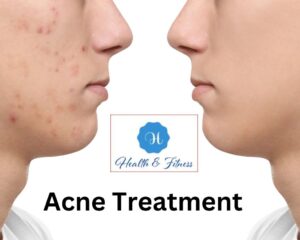
Your skin type, the type of acne you have, and the lifestyle you lead will determine the most effective acne treatment for you. While you can purchase some products without a prescription, a dermatologist must prescribe most topical and oral treatments.
Topical acne treatments include:
- You can apply benzoyl peroxide to the skin as a gel or wash it off with the face to eliminate surface bacteria that contribute to or worse acne.
- Salicylic acid can be used on the skin in cleansing or toning capacity. It will prevent further clogging of your pores by removing the top layer of damaged skin and dissolving dead skin cells, both of which it will do.
- Retinoids, derived from vitamin A, are particularly efficient at removing black and whiteheads and preventing pores from becoming blocked.
- Antibiotic lotions can manage the surface bacteria responsible for causing pores to get clogged.
Oral medications for acne include:
- Antibiotics, such as doxycycline, can eliminate germs and treat moderate to severe Acne.
- Hormone-based oral contraceptives effectively reduce the breakouts brought on by hormonal imbalances and the onset of menstruation.
- Isotretinoin is indeed an oral retinoid that effectively treats acne by reducing the activity of the sebaceous (oil) glands in the skin. By doing so, it helps to decrease the production of excess oil, which is a major contributing factor to the development of acne.
Advice for Taking Care of Acne
The majority of people with acne feel tired of repeatedly hearing the same advice, which is to wash their face, drink water, and avoid sugar. Even though no one remedy will work for everyone, some people have found that their Acne has significantly improved by following these guidelines. If you don’t already have a set regimen for washing your face, the following are some more things you might do to control your Acne:
- Wash your face frequently, especially after sweating, as your pores are most prone to becoming blocked with dirt and oil.
- Cleanse your skin, but avoid exfoliating it excessively. Make use of a mild exfoliant and your fingers. You should avoid using harsh exfoliants on your skin because doing so can leave you more susceptible to bacterial illness and even more acne.
- Refrain from touching your face during the day, as doing so may cause dirt and bacteria to be transferred onto your skin.
When You Should Visit a Dermatologist
Healthy skin needs dermatologist appointments. Dermatologists treat skin, hair, and nails. They diagnose, treat, and prevent skin problems. Dermatologists: when? See a dermatologist if you can’t fix your skin. Symptoms include eczema, psoriasis, moles, warts, and others. If your family has skin cancer, consult a dermatologist periodically. Dermatologists should examine new moles and patches. Dermatologists treat itching, burning, and discomfort. Discuss laser and chemical peel risks and benefits with a dermatologist. Besides them, Dermatologists should check the skin routinely. Early detection is essential for treating skin cancer in families. Over-40s should get regular skin examinations. Skin requires dermatologists. Dermatologists address skin disorders and cosmetics. A dermatologist. Skin cancer screenings need regular dermatologist appointments if you are over 40 or have a skin cancer family history.
Conclusion
Acne is a skin condition that manifests when the hair follicles on your face become obstructed with oil and dead skin cells. This leads to its development of it. This leads to the appearance of Acne. Whiteheads, blackheads, and pimples may result. It is a skin disorder that may affect anybody, although it is more common in persons aged 12–24. Many treatments may minimize breakouts and heal your skin.

